|
Genres, Themes, Actors, and Directors:
- Actors and Actresses
- Dorothy Arzner Films
- Lionel Atwill Films
- Love Triangle
- Prostitutes and Gigolos
- Social Climbers
- Star-Crossed Lovers
Review:
Swedish-Ukranian beauty Anna Sten was meant to be Samuel Goldwyn’s answer to Marlene Dietrich and Greta Garbo, but her rising star faded quickly, and she’s only vaguely remembered (if at all) by film fanatics today. Nana — directed by Dorothy Arzner, and loosely based on Emile Zola’s novel of the same name — was the first of three English-language films Sten starred in, and shows ample evidence of her luminous looks but not much else.
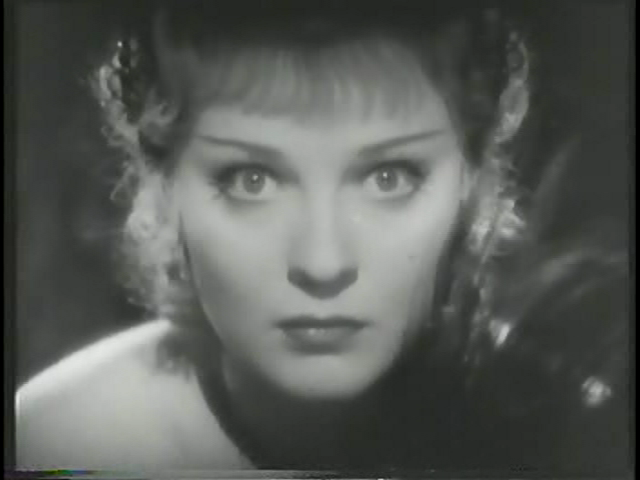
To her credit, Arzner recognized the limitations of what she was given to work with; in a 1977 interview with Guy Flatley for The New York Times, she noted:
“Goldwyn gave me everything I wanted in the way of sets, lighting, cameramen and costumes, but he also gave me the job of making Anna Sten look like a great actress. He had spent a year grooming her, telling everyone that she would be greater than Dietrich, greater than Garbo, and then when she opened her mouth, out came these monosyllables. The only thing I could do was not let her talk so much.”
To be fair, Sten actually exhibits a flirty, emboldened charm appropriate for the character she’s playing; it’s her lackluster costars (Atwill in particular is regrettably wooden), and the stale, overly familiar plot — a much-sanitized version of Zola’s episodic novel — which really sink this film. Ultimately, only Gregg Toland’s stunning cinematography (see stills below) elevates Nana a notch above pedestrian.
Redeeming Qualities and Moments:
- Gregg Toland’s luminous cinematography
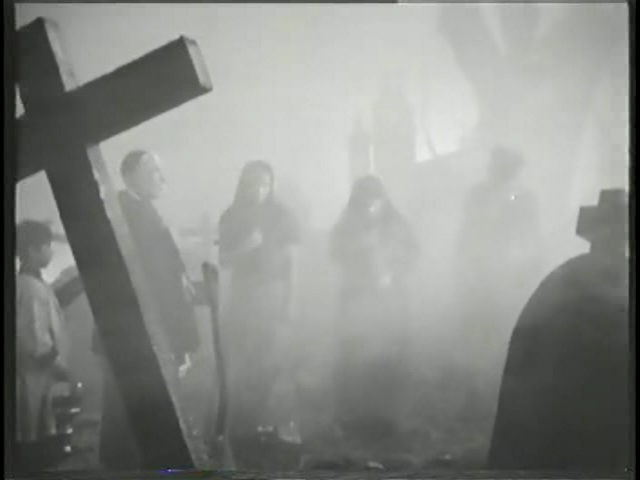
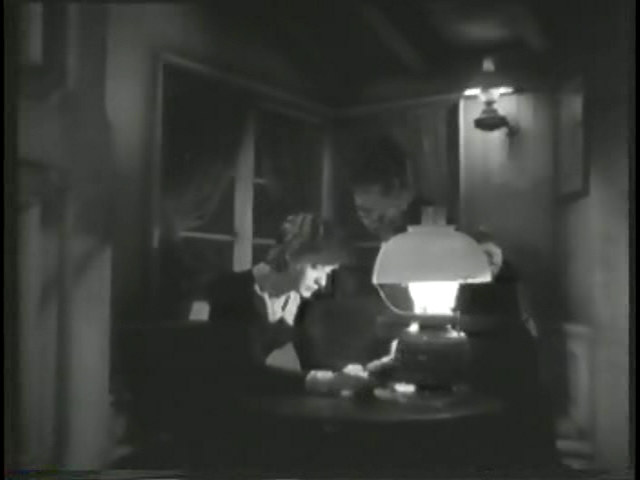
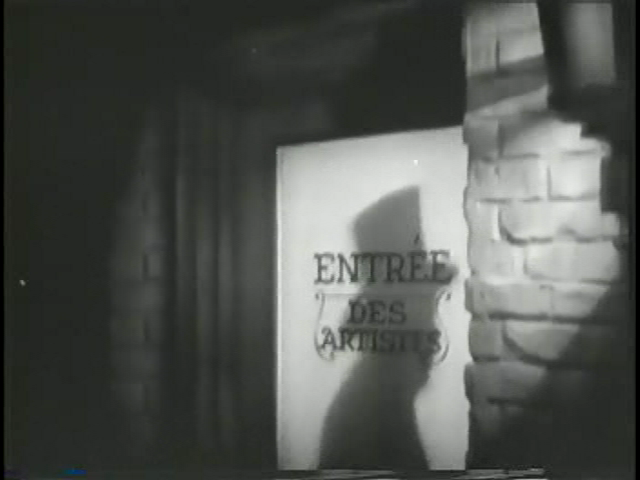
Must See?
No, though film fanatics may be curious to see Sten in at least one film, and Toland’s camera work makes it not entirely unpleasant viewing.
Links:
|
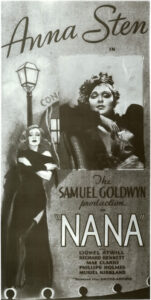




One thought on “Nana (1934)”
First viewing.
Tedious,
tedious,
tedious,
tedious,
and tedious.
(Translation: Not a must.)
Yes, what director Arzner is wonderfully quoted as saying in the assessment is true; it clearly shows on-screen that Goldwyn gave Arzner EVERYTHING she needed to surround Sten with quality – and Arzner is no slouch in her attempt to make it all come together. It’s also true that DP Toland’s work is stunning.
But, plainly put, Sten is awful. Awful enough to sink surrounding quality. More than that, she doesn’t seem very bothered by that fact; her attitude appears to be, “Well, you want to put me in an English-language movie?, ok, why not. I go to America. Have good time.” In that sense – and in that sense alone – she does equal Dietrich and Garbo. But she’s still not much of an actress; she lacks that ‘je ne sais quoi’ that the camera can’t help but magnify.
In her defense, however, the script is an absolute stinker. How bad? I’d never seen it before and bad dialogue was coming out of my mouth before it came out of the mouths of the characters. (All actors need a good script – Dietrich and Garbo included; the difference here is that Sten reveals no aptitude for the art of working magic on a bad one.) The story is pointless, pointless, pointless – and just when it can’t get any more so, war is declared! Which only serves to briefly distract us from the fact that the film is pointless. But, not to worry, it gets back to that.